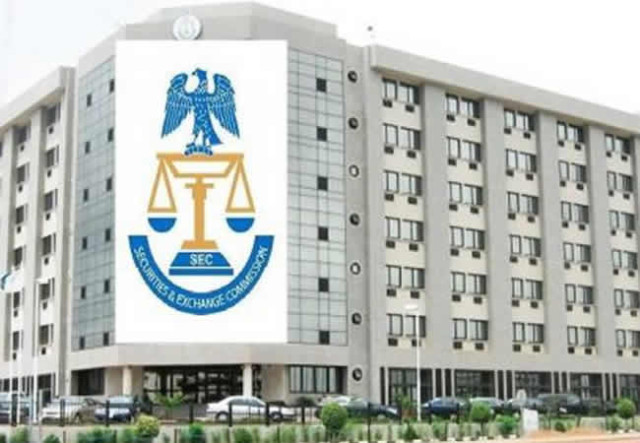The Securities and Exchange Commission has taken a firm stand against the entry of illegal funds into the capital market through the recent banking recapitalization exercise.
The Executive Director (Operations) of the commission, Dayo Obisan, made this known during a symposium organized by the Association of Capital Market Academics of Nigeria.
The event focused on the implications of the Banking Sector Recapitalisation for the Nigerian Capital Market. Obisan expressed the commission's positive outlook on the banking sector recapitalisation exercise and its commitment to collaborating with stakeholders to ensure a smooth process.
He emphasized the importance of learning from past experiences to create a more favorable and positive environment for the recapitalisation exercise. Additionally, he highlighted the significance of ensuring that only clean and verifiable funds enter the system to prevent money laundering.
The SEC is willing to work with other regulators to prevent illicit funds from infiltrating the capital market, even though fund verification is not typically under its jurisdiction.
In his welcome address, the Chairman of the Senate Committee on Capital Market, Osita Izunaso, raised concerns about illicit funds.
He assured that the Senate was ready to work with industry players to address concerns in the sector.
Meanwhile, the President of the Chartered Institute of Stockbrokers, Oluwole Adeosun, maintained that the capital market can support the fresh capitalisation exercise.
He said, “The market is able and has expanded in the last ten years to be able to withstand any challenges with this capital raising exercise. It is important to know that investors have started to position themselves in the stocks of Tier 1 banks with the announcement of the planned recapitalisation last year.”
Adeosun also called on the banks to consider other options beyond the right issues, as had been seen in recent days in the sector, given the size of the funds needed to be raised as well as to bring in a fresh set of investors into the market.
“There should be more than a rights issue. We believe that some of them should go by private offer and public offer because the capital is huge so that we can bring in more shareholders into the market. We believe it is another opportunity for Gen Zs and millennial investors to come into the market.
He, however, projected that the sale of banks to another was unlikely given the stability of banks before now as well as the two-year time frame that the banks have to raise the funds.
In her comments, the Chief Executive Officer of EmergingAfrica Group, Mrs Toyin Sanni, asserted that the current recapitalisation move is good for the country, as it would encourage foreign inflow of capital.
In late March, the CBN announced an upward review of the minimum capital requirement for banks in the country.
The apex bank mandated a minimum capital of N500bn, N200bn and N50bn for commercial banks with international, national, and regional licenses, respectively.




















